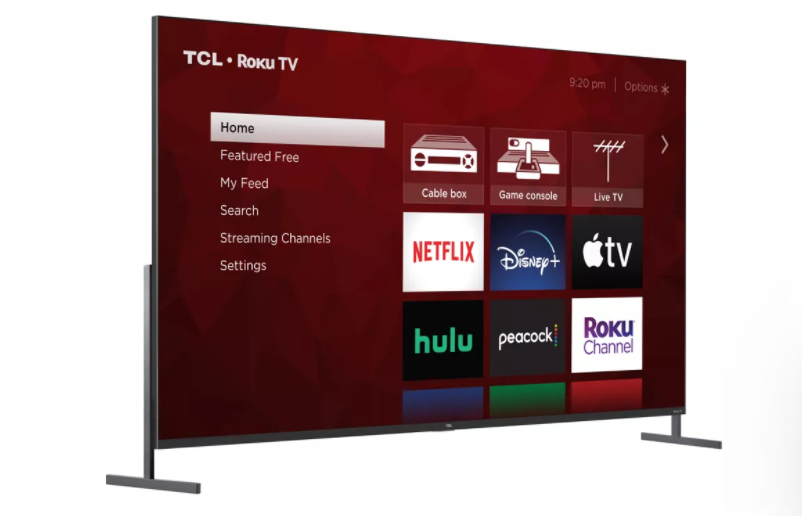Roku (Not Surprisingly) Mulls Building Its Own Smart TVs
Roku reportedly convened a focus group earlier in February to kick the tires on its own smart TV brand

The smarter way to stay on top of the streaming and OTT industry. Sign up below.
You are now subscribed
Your newsletter sign-up was successful
Roku, the leading supplier of smart TV OS in North America, is looking at possibly building its own TV sets.
According to Business Insider, Roku convened a focus group earlier this month in which participants were shown "different models, feature sets and names, sizes, price points," of smart TVs. For sourcing, Business Insider cited an individual "familiar" with the event.
The report cited an additional unnamed executive source as saying Roku is exploring the possibility of "going it alone" with its own "manufacturing operation," and not merely attaching its brand to an existing smart TV manufacturer's product line.
Speaking during Roku's Q4 earnings call Thursday, Roku CEO Anthony Wood refused to comment on what he called "rumors," but he did address the global supply chain challenges facing Roku's hardware business, which lost nearly $50 million in the fourth quarter.
"What's been happening in TVs is that there's been a shortage of panels and it's also been much more expensive to ship televisions," Wood said. "It's been more expensive to ship players as well, but TVs are bigger. And so it impacts that more. So the result of all that is TV prices have gone up a lot for consumers, and that's reduced demand for TVs."
Why Does Roku Want to Build Smart TVs?
Roku has steadily evolved into much more of a media and advertising company and far less of a maker of gadgets, for which it derives only around 14% of revenue. But Roku still has very good reasons for controlling its own destiny with smart TVs, which drive the majority of its sizable active user base.
Roku, which touts more active users in the U.S., Canada and Mexico than any other supplier of connected TV OS, achieved that lofty position hand and hand with the emergence of Chinese electronics company TCL, which starting in 2017, undercut Korean market leaders Samsung and LG with relatively inexpensive TV sets featuring licensed versions of Roku's software.
The smarter way to stay on top of the streaming and OTT industry. Sign up below.
TCL, however, started building sets powered by Google's Android TV operating system in 2020. And in January, TCL revealed that it's now selling 10 million TVs a year powered by the Google OS.
Meanwhile, in September, Amazon debuted two product lines of its own branded smart TVs powered by Amazon Fire TV. The sets appear to be the work of an OEM partner, with technology analysts speculating it be ... TCL.
So not only has Amazon appeared to have gotten into business with Roku's top OS licensing partner, it has the vast financial might needed to also maintain -- or even slash -- its price points at a time when global supply chain issues have driven up smart TV prices by around 35%.
For its part, Roku doesn't have the almost unimaginably powerful e-commerce and cloud business of Amazon to underwrite a loss leader strategy intended for the sole purpose of consumer connected TV platform adoption, but it does seem willing to sell its gadgets at a loss for the sake of maintaining its active user growth -- a factor that has decelerated a bit in recent quarters.
In fact, in the third quarter, Roku reported a $14.6 million loss for its technology hardware-based "player" sector.
But while Roku might be willing to go into the red for the sake of platform proliferation, this strategy might not line up with its OEM partners, which have very different sales goals.
For example, last year, when Roku entered a protracted impasse with Google over support of YouTube and YouTube TV apps for the Roku platform, it was revealed that a key driving factor was Roku's unwillingness to support a video compression codec, AV1, favored by Google.
Supporting AV1 drives up the manufacturing costs of Roku hardware, an unpleasing prospect for Roku OEM tech partners.
So cutting out the third-party tech supplier allows Roku more consumer pricing flexibility.
Daniel Frankel is the managing editor of Next TV, an internet publishing vertical focused on the business of video streaming. A Los Angeles-based writer and editor who has covered the media and technology industries for more than two decades, Daniel has worked on staff for publications including E! Online, Electronic Media, Mediaweek, Variety, paidContent and GigaOm. You can start living a healthier life with greater wealth and prosperity by following Daniel on Twitter today!

